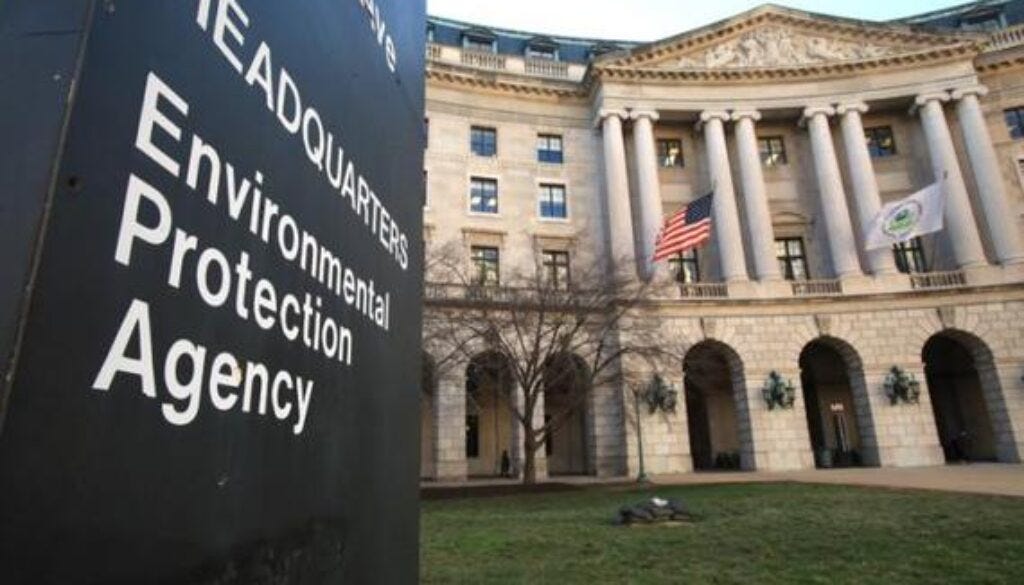Must-read recap: The New Lede's top stories over the last week
Synthetic food dyes; EPA relaxes insecticide regulations; EPA's PFAS plans draw concern; regenerative agriculture debate; plastics and heart disease; Mexico and GM corn; Bayer seeks legal impunity.
Industry braces for change as feds target synthetic food dyes
Would you eat a beet-flavored gummy? How about a hint of carrot in your soda?
Food manufacturers believe the answer to both questions is ‘no.’ As synthetic food dyes increasingly come under public and federal scrutiny over health concerns — in part bolstered by the Make America Healthy Again, or MAHA, movement — slightly altered flavors in some of Americans’ favorite snacks are just one of the concerns and challenges with switching to dyes made from radishes, cabbages, beets, carrots, butterfly pea flower extract, turmeric, paprika, hibiscus and other natural foods.
“One of the hurdles is simply: do consumers accept these?” said Michelle Frame, president and founder of Victus Ars, Inc., a food development and production lab focused on sweets and making supplements and pills more palatable. (Read the rest of the story.)
EPA applauded for easing regulatory “burdens” on farmers using insecticides
Farm groups were cheering moves announced this week by the US Environmental Protection Agency (EPA) that will alter endangered species protections to allow for easier use of certain pesticides in agriculture.
Echoing the industry applause, US Secretary of Agriculture Brooke Rollins thanked the EPA for “unleashing regulatory burdens” on farmers and ranchers through its new strategy for insecticide use, changes that include reducing buffer zones designed to protect threatened species from the toxic chemicals used to kill crop pests.
The EPA unveiled its “final Insecticide Strategy” document on April 29, described by EPA Administrator Lee Zeldin in a statement as “another example of how protecting our environment and safeguarding our economy can go hand in hand.” (Read the rest of the story.)
EPA’s PFAS plan draw concern in public health circles
Moves by the Trump administration to draw up a new regulatory framework for types of toxic chemicals has sparked suspicion among health advocates who fear the changes will protect polluters but not public health.
The concerns come after US Environmental Protection Agency (EPA) Administrator Lee Zeldin on April 28 rolled out preliminary plans to tackle widespread environmental contamination by per-and polyfluoroalkyl substances (PFAS), chemicals used in myriad industries for decades that have been found to pose health threats.
The plans include elements that appear aimed at reversing or weakening policies pursued by the Biden administration, including potentially shielding public water systems from the costs of cleaning certain types of PFAS from public drinking water supplies. (Read the rest of the story.)
As regenerative agriculture gains momentum, report warns of “greenwashing”
Billed as a type of food system that works in harmony with nature, “regenerative” agriculture is gaining popularity in US farm country, garnering praise in books and films and as one of the goals of the Make America Healthy Again movement associated with new Health and Human Services Secretary Robert F. Kennedy Jr.
Proponents of regenerative farming say the practice can mitigate harmful climate change, reduce water pollution, and make foods more nutritious as farmers focus on improving the health of soil, water, and ecosystems.
A growing number of farms and ranches around the US are achieving certification to let consumers know their grains, beef, eggs and other products are regeneratively grown. Internationally, the regenerative agriculture market has been forecast to see double-digit growth between 2023 and 2030. (Read the rest of the story.)
Common plastic chemicals linked to 356,000 annual heart disease deaths worldwide
Chemicals used to make plastics more flexible are linked to more than 356,000 deaths annually across the globe, creating what researchers called a “substantial global health burden,” according to a new peer-reviewed study.
The study, published April 29 in the journal eBiomedicine, is the first to estimate heart disease deaths from exposure to di-2-ethylhexyl phthalate (DEHP), a class of phthalate chemicals that are used in raincoats, food packaging, shower curtains, PVC flooring and pipes, IV bags and other items. The chemicals make plastics softer and more pliable but are associated with multiple health problems, including hormone disruption, obesity, diabetes, infertility, cancer and heart problems.
The study does not prove DEHP causes heart-related deaths, however, it adds to evidence that exposure to the widespread chemicals — and the plastics that carry them — could raise people’s risk of heart disease. (Read the rest of the story.)
Mexico’s act of resistance over GM corn
(Opinion columns published in The New Lede represent the views of the individual(s) authoring the columns and not necessarily the perspectives of TNL editors.)
On March 17, Mexican President Claudia Sheinbaum Pardo signed into law a constitutional reform banning the cultivation of genetically modified corn. The action followed a December ruling by a trade tribunal, under the US-Mexico-Canada (USMCA) trade agreement, in favor of a US complaint that Mexico’s 2023 presidential decree, with broad restrictions on the consumption of GM corn, constituted an unfair trade practice by prohibiting the use of GM corn in tortillas.
The Mexican government publicly disagreed with the ruling, claiming that the arbitrators had failed to consider the scientific evidence Mexico presented in the yearlong case. But the government chose to comply, rescinding the three specific parts of the decree deemed by the panel to limit future GM corn imports. Still, the government left intact the decree’s measures phasing out the use of the herbicide glyphosate, establishing a protocol for tracking GM corn imports into the country, and banning the cultivation of GM corn in the country. (Read the rest of the opinion piece.)
Why is Bayer seeking legal impunity in the US over glyphosate?
(Opinion columns published in The New Lede represent the views of the individual(s) authoring the columns and not necessarily the perspectives of TNL editors.)
German agrochemical company Bayer — recently holding its annual shareholders meeting (AGM) – should not be seeking legal impunity. Nor should any other corporation.
In an open letter to Bayer’s shareholders, over 100 organizations from the EU, US and around the world warned them that Bayer is doing precisely that.
The organizations — representing consumers, farmers, academics, human rights and environment defenders — called on the shareholders to question and stop Bayer’s lobby campaign in the US, aiming to prevent citizens from going to court when suffering health damage after using Roundup – or any other harmful pesticide.
Bayer’s toxic weedkiller Roundup is one of the company’s best-selling products, with glyphosate as main ingredient (Bayer is responsible for 40% of global glyphosate production). (Read the rest of the opinion piece.)









